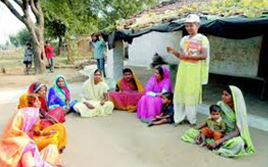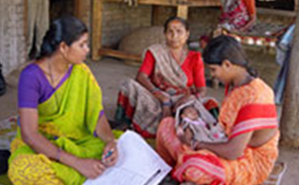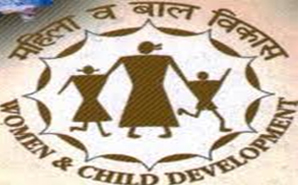Anganwadi Scheme
"Today in India, about 2 million Anganwadi workers are reaching out to a population of 70 million women, children and sick people, helping them stay healthy. Anganwadi workers are the most important and oft-ignored essential link of Indian healthcare"
Project Description
Anganwadi scheme is an integrated Child Development Program started by the Government of India in 1975 to combat child hunger and malnutrition. Being a part of the Indian Public Health Care system, its activities include providing supplementary nutrition, non-formal pre-school education, nutrition & health education, immunization, health check-up and referral services. The Anganwadi centers are also used as depots for distribution of medicines and oral rehydration salts.
There is ample evidence to demonstrate that social development in India has suffered a setback with the introduction of economic reforms as part of the process of liberalization and globalization. The social sectors have been the first target of retrenchment in public expenditure in the largely unsuccessful bid so far to achieve fiscal balance.


The basic work of Anganwadi workers is extremely important and needs to be carried out in the most efficient manner possible. They need to provide care for newborn babies as well as ensure that all children below the age of 6 are immunized or in other words have received vaccinations. They are also expected to provide antenatal care for pregnant women and ensuring that they are immunized against tetanus. In addition to this they must also provide post natal care to nursing mothers.
The system is mainly managed by the Anganwadi worker, who is chosen from the community and given 4 months training in health, nutrition and child-care. She is in charge of a Centre which covers a population of 1000. 20 to 25 such Anganwadi workers are supervised by a Supervisor called Mukhyasevika. 4 such Mukhyasevikas are headed by a Child Development Projects Officer (CDPO).
Challenges
- No online monitoring of Centers and Workers
- Misuse of benefits/schemes
- Pilferage and time delays
- No transparency and hence leading to fraud
- Lack of effective record management
Effia’s Solution
Effia’s end-to-end Anganwadi framework has successfully automated the entire process. The web based solution ensures that the policies and benefits designed by the government reach the right beneficiary and there is complete transparency in the entire process.

Impact of the solution
- Transparency of all transactions to all stake holders
- Increased level of security
- Online storage of records
- Online availability of real-time data
- Reduction of administrative costs
- Increased accountability

